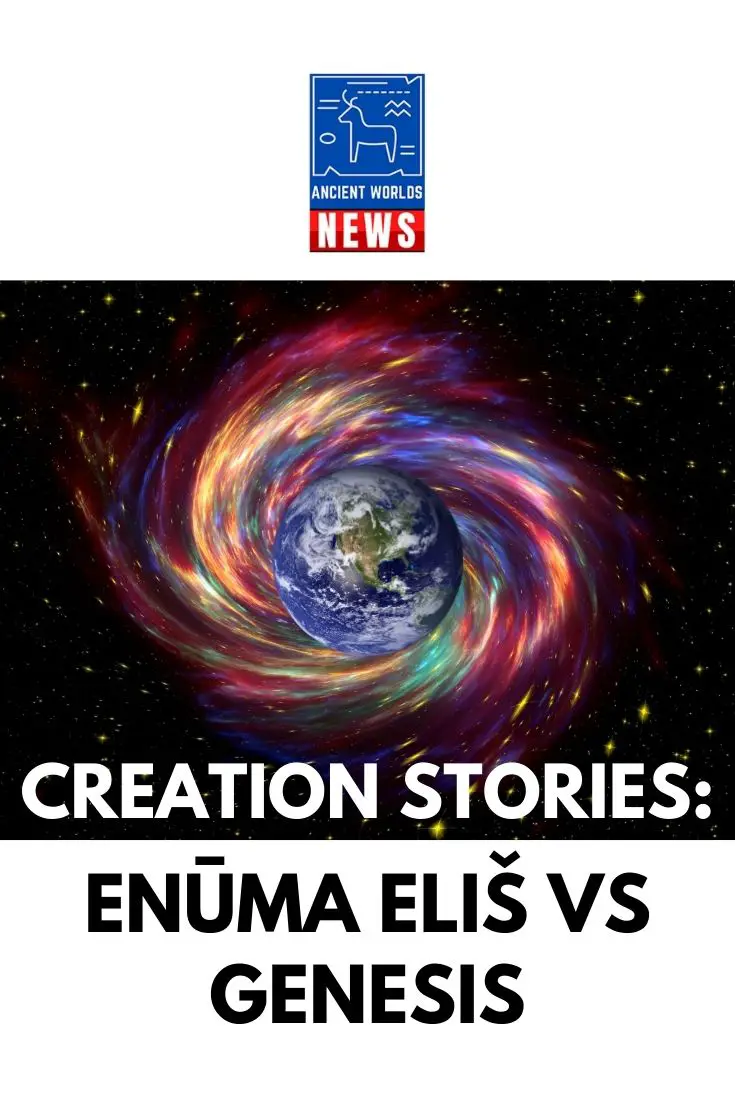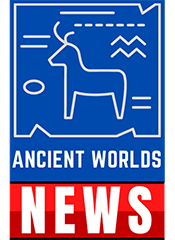Even though Enūma Eliš and the story of creation in Genesis are not directly connected, some scholars believe that they are related. For example, in both, the number seven is important. Also, the supreme beings in both prioritized human beings and put them in charge of all other creations.
Enūma Eliš
Enūma Eliš is the Babylonian creation myth. In the beginning, men and the gods had a peaceful, friendly, and familial relationship. However, this changed when foreign invaders sowed the spirit of injustice between the gods and men. Enūma Eliš was recorded on seven tablets that contain the history of the Babylonian myth during the time of Nebuchadnezzar I. He was in power from 1124 to 1103 BC.

These seven tablets tell the story of the world’s creation as well as the war between the gods. The god Marduk wanted to be more supreme than other gods. In the beginning, human beings were created to serve the gods, but under Marduk’s influence, they ended up praising him more than the other gods.
The origin of this myth is not clear, even though one of its versions was often used in certain festivals. Some scholars claim that this myth was politically influenced, and the reason for that was to legitimize Mesopotamia’s dominance over Assyria. Enūma Eliš was copied several times in both Assyria and Babylon. The latest version of the tablet puts Ashur, the main Assyrian god, in place of Marduk.
The good god Enlil is overthrown by the unforgiving god Marduk, and Marduk becomes the highest-ranking god in Mesopotamia. Marduk is worshipped by violent people who punish those not willing to pay tribute to Marduk.
In the beginning, the two primordial beings Apsu and Tiamat created a huge number of gods who were disruptive and disorderly. Apsu considered destroying the new gods because of their disagreeable natures and consulted another god, Mummu. The newer gods found out that Tiamat and Apsu were displeased with them, and one god, Ea, concocted a plan to kill Apsu and succeeded in doing so. Ea and his wife Daminka then gave birth to Marduk. Marduk was more wonderous and powerful than any god that had come before him.
Needing to avenge Apsu’s death, Tiamat declared war on the newer gods. Worried, the gods consulted among themselves and ultimately decided to put forth Marduk to fight against Tiamat. Marduk agreed to take on the powerful goddess only if he was to be declared the supremist of beings and to reign over all others.
With the help of the four winds, Marduk defeated Tiamat. He also captured her monsters and sent her consort, the god Kingu, to the Angel of Death. With Tiamat’s body, Marduk created the sky and dwelling places for Anu, Enil, and Ea. Marduk also created night, day, the moon, constellations, days, and the rivers Euphrates and Tigris.
After speaking with Ea, Marduk decided to create men to serve the gods, and Ea advised him to sacrifice Kingu in order to accomplish this. Thus, man was created with Kingu’s blood, and Babylon was constructed as a shrine to Marduk, complete with a temple.
The Seven-Day Creation Story
In the beginning, the earth was void and without form and there was darkness all over. The spirit of God roamed over the water. On the first day, God created light and he separated it from the darkness. And he named the light “day” and the darkness “night.”
On the second day, he divided the waters as well as Heaven.
On the third day, he created sea, earth, and vegetation. God gathered the waters under the heavens and the dry land appeared. He named the dry land “earth,” and the waters that had gathered he called them “seas.” Then he created herbs, fruit, grass, and other vegetation.
On the fourth day, he created the moon, the stars, and the sun. The sun was to appear during the day while the moon would be seen during the night.
On the fifth day, he created birds and sea creatures.
On the sixth day, he created land animals and human beings. After God had finished creating land animals, he molded human beings from clay in his image and likeness.
On the seventh day, God rested since he was finished creating.
Similarities
In both stories, the number seven is important. In Enūma Eliš, the myth is written on seven tablets, and in the Bible, God took seven days to create.
In each story, human beings played significant roles. In Enūma Eliš, they were created to serve the gods, while in the Bible, human beings were given the authority to take care of God’s creations. Also, in both stories, human beings were created in God’s image and likeness. In the Bible, man was made from clay, and in Enūma Eliš, man was created from the blood of the god Kingu.
Conclusion
In both belief systems, seven is a significant number that is used to declare completeness, and in both stories, human beings are given special roles. In the Bible, humans are put in charge of God’s other creations, and in Enūma Eliš, humans are intended to serve the gods. Finally, in each story, man’s body is created from precious material; in the Bible, Adam is created with clay. In Enūma Eliš, humans are created from the blood of a sacrificed god.

